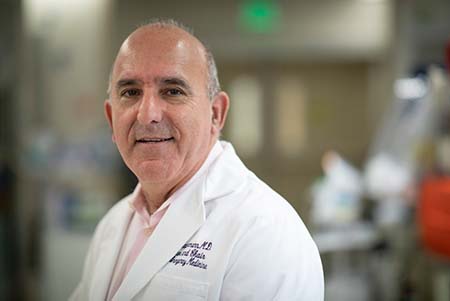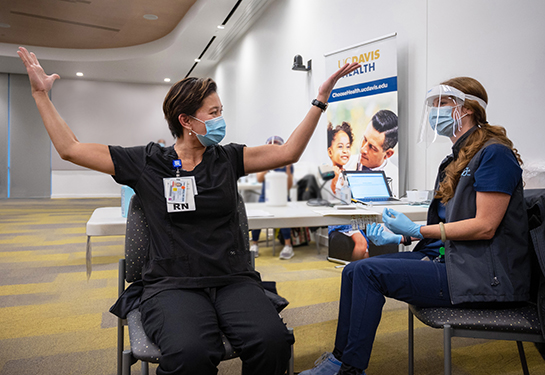International study identifies risks for long COVID in children
A new international study conducted in eight countries and published in JAMA Network Open offers a clearer picture of the risks associated with long COVID in children.

The study was co-led by a team of researchers from UC Davis Health, the University of Calgary’s Cumming School of Medicine and Ann & Robert H. Lurie Children’s Hospital of Chicago. It showed nearly 6% of children who presented to the emergency department with COVID-19 reported symptoms of long COVID 90 days later. Among these patients, three characteristics were associated with long COVID:
- Initial hospitalization of 48 or more hours
- Four or more symptoms at the initial emergency department visit
- The child was age 14 or older
“We found that in some children, illness with COVID-19 is associated with reporting persistent symptoms after three months,” said Stephen Freedman, professor at the University of Calgary’s Cumming School of Medicine and co-principal investigator of the study. “Our results suggest that appropriate guidance and follow-up are needed, especially for children at high risk for long COVID.”
The study included 1,884 children with COVID-19 who had 90-day follow-up visits. Long COVID was found in nearly 10% of hospitalized children and 5% in children discharged from the emergency department.
“Reported rates of long COVID in adults are substantially higher than what we found in children,” said co-principal investigator Nathan Kuppermann, chair of the Department of Emergency Medicine at UC Davis. “Our findings can inform public health policy decisions regarding COVID-19 mitigation strategies for children and screening approaches for long COVID among those with severe infections.”
Our findings can inform public health policy decisions regarding COVID-19 mitigation strategies for children and screening approaches for long COVID among those with severe infections.” —Nathan Kuppermann
The most reported persistent symptoms in children were fatigue or weakness, cough, difficulty breathing or shortness of breath.
“Our finding that children who had multiple COVID-19 symptoms initially were at higher risk for long COVID is consistent with studies in adults,” said co-principal investigator Todd Florin, director of research in emergency medicine at Ann & Robert H. Lurie Children’s Hospital of Chicago and associate professor of pediatrics at Northwestern University Feinberg School of Medicine. “Unfortunately, there are no known therapies for long COVID in children and more research is needed in this area. However, if symptoms are significant, treatment targeting the symptoms is most important. Multidisciplinary care is warranted if symptoms are impacting quality of life.”
The study occurred within the Pediatric Emergency Research Network, a global consortium of the world's major pediatric emergency care research networks. It received support from the Canadian Institutes of Health Research, Alberta Health Services and the University of Calgary, the University of California Davis and Cincinnati Children’s Hospital Medical Center.



